latest

It's all too easy to get caught up in the hype surrounding new phones. Maybe you're excited for Google's Pixel 6 and its Whitechapel chip, or you're dying to get your hands on Samsung's latest stylus-friendly foldable. Regardless of your personal preference, there are all sorts of devices ready to launch over the next few months. But forget all of them — they're old news. We know what you're really looking for: keyboards, 5G, and one of the hottest brands from the 2000s. That's right, folks — another BlackBerry phone is still in the works.
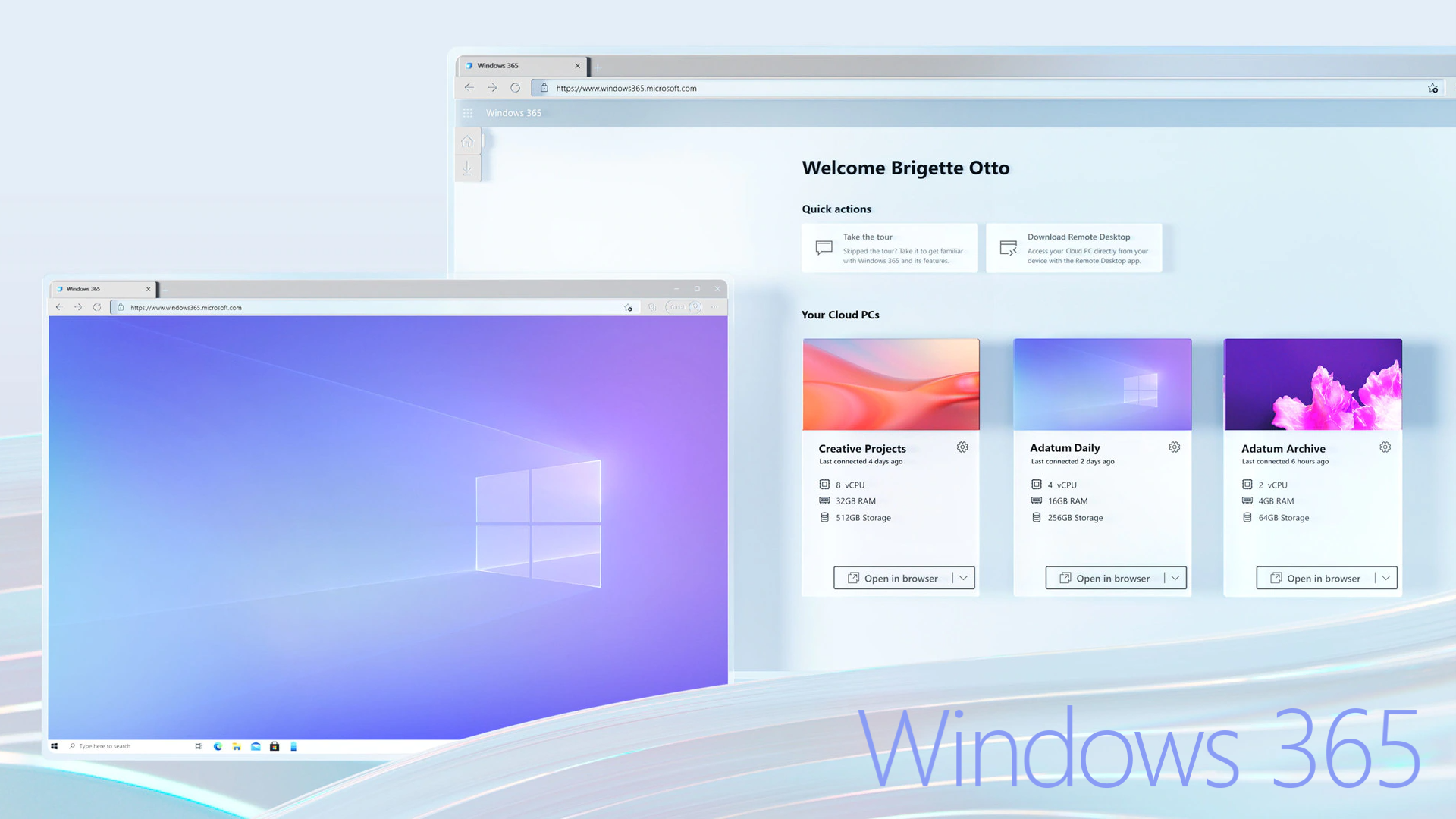
Microsoft wants to stream Windows to all your screens, including your Android devices
It's like Xbox Cloud Gaming, but without the fun
Cloud-hosted virtual desktops aren't anything new, but Microsoft, as a first party to Windows, hopes to do the competition better with Windows 365. Built on Azure Virtual Desktop, the subscription service will be available to businesses starting next month.
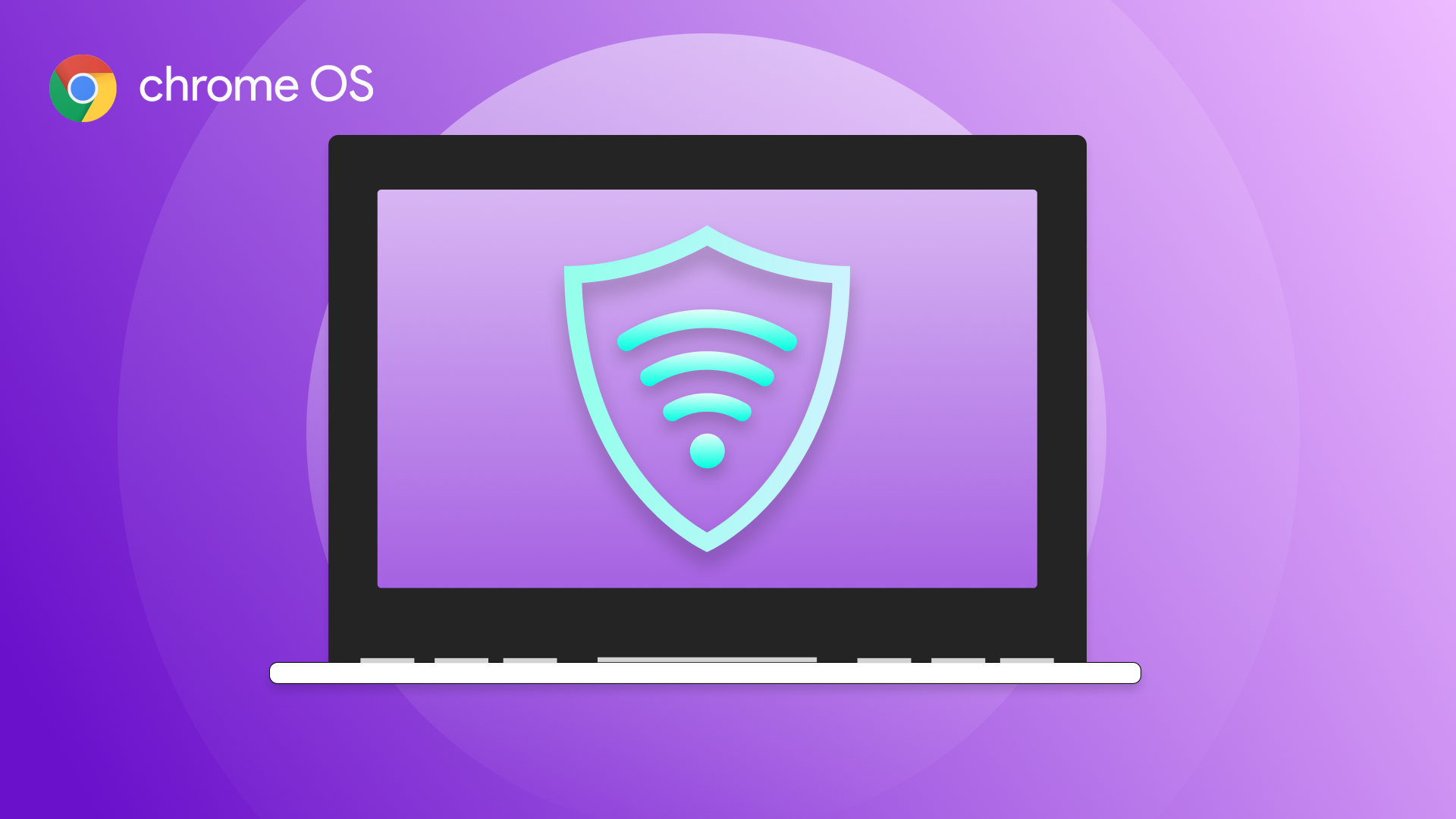
Using a VPN on Chrome OS with multiple users is about to get a lot easier
Get peace of mind logging in to your Chromebook
Digital privacy has long been a major concern for many, and one brought to the forefront when a global pandemic forced millions to shift their lives online. With ISPs and advertisers taking advantage of the work-from-home lifestyle, protecting yourself with a Virtual Private Network (VPN) is a great solution for keeping prying eyes off your data. It may be easy to set up a VPN on your Chromebook, but it can be a hassle to turn it on again after a reboot. You may not have to wait long, though, as an upcoming change will keep your VPN engaged all the time.
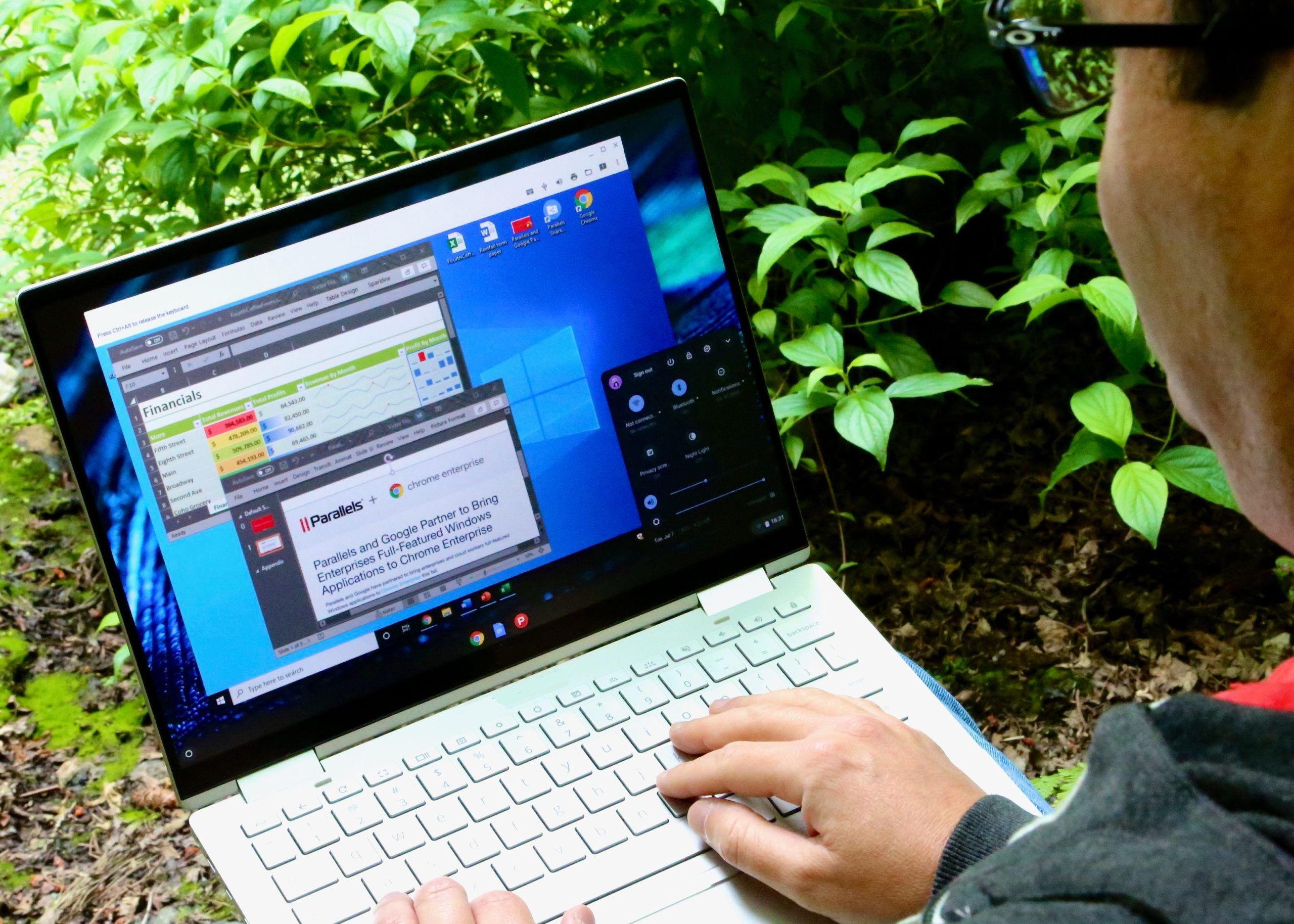
More Chromebook models can now run Windows apps in Parallels
Still only for enterprise users, but it's something to get excited about
Parallels, a Windows virtual machine app for Chrome OS, is now available on more Chromebooks with the inclusion of AMD Ryzen processor support. VM users are also getting further access to USB and other peripherals as well.

T-Mobile introduces employer-managed 5G internet for home office workers
The company is also debuting a suite of collaboration tools that sync across devices
With high speeds, low latency, and frequencies that work best in dense urban areas, 5G has often been touted as a wireless alternative to conventional internet systems. T-Mobile is putting its money where its mouth is by announcing a business class option for its home internet service. The system is similar to its current home internet offerings, but managed and paid by an employer rather than the end user, and packing a few more security tools.

Google wants people to use Meet with its own Meet-y hardware bundles
Will managers spend thousands for AI-ified A/V kit for their socially-distanced offices?
Google is once again expanding its hardware offerings by getting into the webcam business — though, this bid screams more of Cisco than Logitech. The company is selling videoconferencing equipment bundles, titled Series One room kits, that revolve around the somewhat ubiquitous Google Meet conferencing service and what group meetings may look like in the near future.

Google+ is dead, long live Currents (for G Suite users)
A fresh coat of paint for the demised social network + some new features
Last year, Google announced the beta release of Currents. You'd be forgiven for not having a clue what that is, as the company hasn't exactly advertised it since, but it's the enterprise replacement/successor for Google+, so us regular folks don't get to use it anyway. Still, Google has been working on the new business social network for a year now and deems it stable enough to migrate G Suite Google+ users over starting July 6, 2020, as the company announced in an email to administrators.
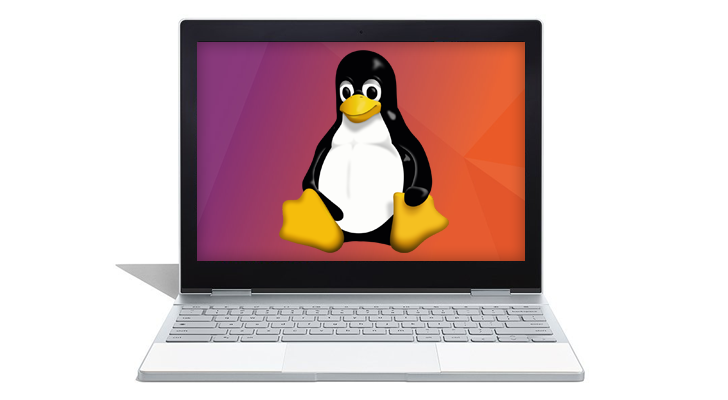
The Linux container on Chrome OS has become better and better since it was first introduced last year. It's now possible to run a wide range of Linux desktop software on Chromebooks, even though graphics acceleration still isn't working. Starting today, administrators can enable the Linux container on Chromebooks managed in an organization, opening the doors for schools and businesses to easily use the feature.

Google has announced that it is re-adopting its Glass division — a longtime staple of Alphabet's moonshot incubator, X — and releasing the first major upgrade to its AR smart glasses product for enterprise customers. With the Glass Enterprise Edition 2 comes beefier components and potentially wider deployment opportunities.

We've covered the Android Enterprise Recommended program a few times in the past — it's a list of phones and tablets that Google recommends for use in companies. All of the devices in the program are running a recent version of Android, receive regular security updates, and work with zero-touch enrollment. Perhaps unsurprisingly, the Google Pixel 3a and 3a XL have now joined the party.

You probably thought that you'd heard the last of Google+ when the consumer version was shut down last week, but Google just announced at its Cloud Next event that the enterprise offering is being renamed "Google Currents." It's positioned as a new product, but we all know that it's just G+ with some minor changes.
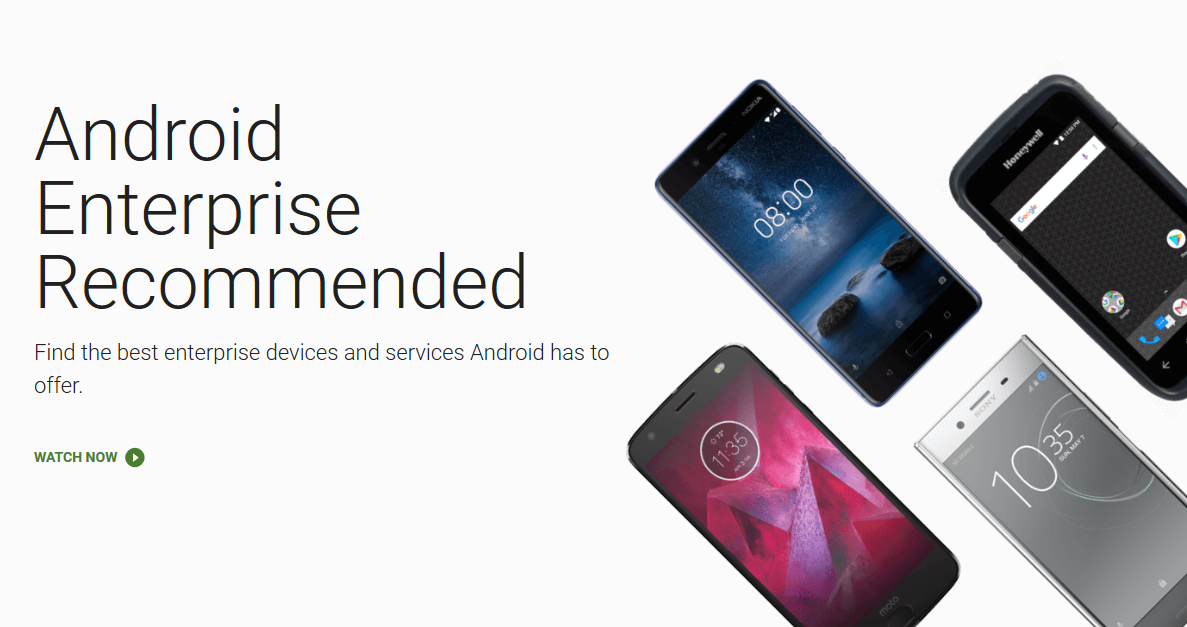
About a year ago, Google announced the Android Enterprise Recommended program. It includes a list of Android devices that are ideal for business use and comply with certain guidelines (running a recent version of Android, supporting zero-touch enrollment, etc.). For companies looking to deploy a large number of phones, Google also now has a set of recommended Enterprise Mobility Management providers.

If you couldn't guess, Google Classroom was designed to be used in classrooms: teachers can use it to create and assign classwork and communicate with students. Now, the platform is coming to G Suite to afford employers the same capabilities.

After a redesign in August, the future was looking brighter for Google Voice. The service had already stepped into a larger role by joining G Suite for business. Adding enterprise support meant more people relying on it, and for the most part it has gone well. On October 1st, however, Google emailed users regarding an error the company made with text message (SMS/MMS) forwarding.

Working in an IT department is not always an easy job, but if your company uses G Suite and Google Mobile Management, life might be getting just a wee bit simpler. Admins can now remotely reset passwords for company-owned Android devices, or lock them in the case of loss or theft.

Google's ongoing Cloud Next conference is a bit like I/O, but with a slant on building hype for corporate products rather than developer interest. In addition to the earlier announcement of a new 2FA hardware security key, Google is also expanding the services available in G Suite to include the much-loved Google Voice, while also tweaking how its Cloud Search and Drive services can work for businesses.

Google has just revealed a host of new features for customers who use G Suite to organize their businesses. The additions are wide-ranging, covering areas such as security and productivity across products like Drive, Gmail, and Hangouts.

Android Enterprise Recommended program adds new models from Huawei, Motorola, BlackBerry, and others
Back in February, Google announced the Android Enterprise Recommended program, which defines which phones are ideal for business use. Devices in the program have to follow a set of guidelines from Google, such as rolling out security updates within 90 days of release. The company announced today that a handful of more devices have been added to the program, including the Moto G6, Huawei P20/P20 Pro, and Sony Xperia XZ2.

One of the key issues facing any business is making sure the technology and services you use facilitate easy collaboration, both internally and externally. Thanks to new integrations in Hangouts Meet and Google Calendar, G Suite users should find it easier than ever to have meetings with users of other platforms.
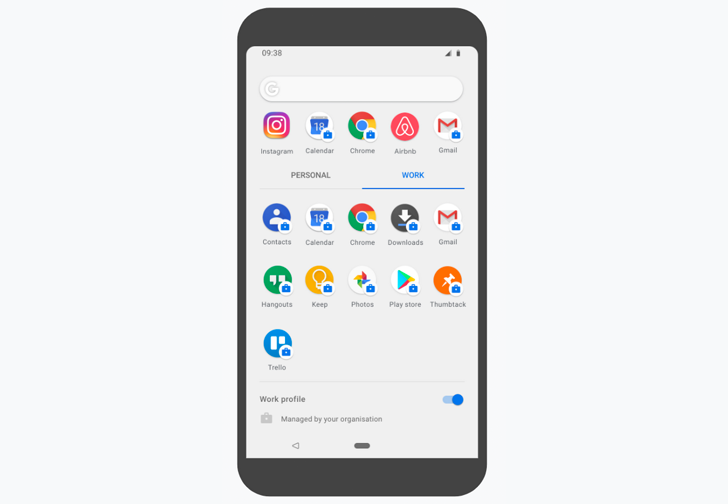
If you use an Android device as a payment terminal or digital sign, you'll be used to locking a single app in place with kiosk mode. In Android P, it's now possible to choose a selection of apps to be accessible in kiosk mode, opening it up to greater productivity. A dedicated launcher shows only those selected to work in this mode (below).











